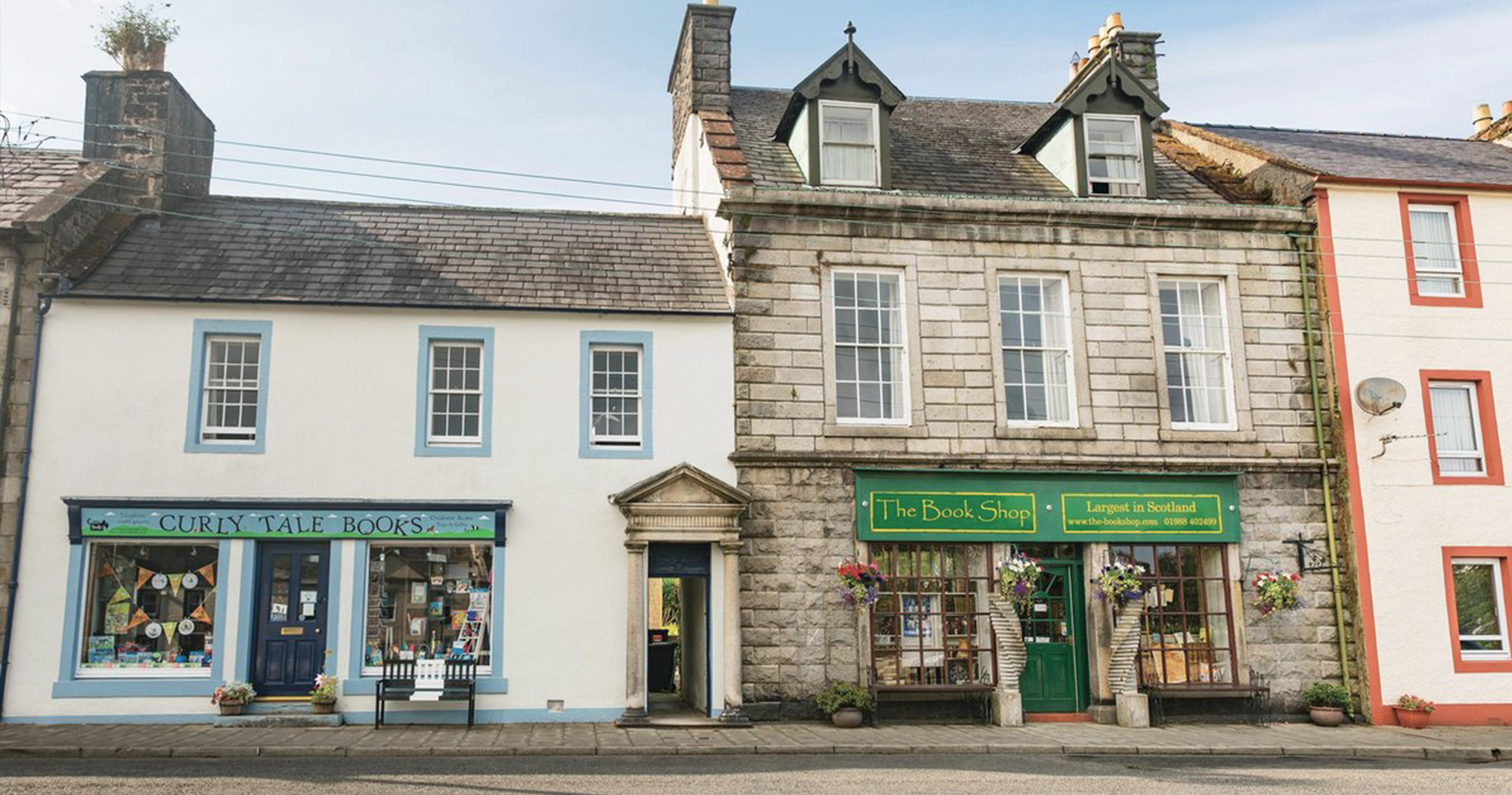Camping in Galloway over the half-term weekend, I took my daughter down to Wigtown to buy a few books.
Scotland’s National Book Town is a remarkable place. Clustered around its tidy square are no fewer than 11 independent book shops selling everything from the latest bestsellers to obscure historical manuscripts. Wigtown, found at the north end of the Whithorn peninsula, is not exactly easy to get to. But on the day we were there (albeit a public holiday), there were dozens of tourists spending an idle day examining the shelves. The tills rang happily.
“In the first year, £1m of property changed hands.”
Wigtown gained its status as the country’s National Book Town in the late 1990s. The idea came from academics at Strathclyde University which had seen the success of Hay-on-Wye, the national book town of Wales, and thought Scotland should have its equivalent. Five candidate towns bid for the status: Stirling, Moffat, Dalmellington, Melrose and Wigtown. Each had to show they were capable of handling an increase in visitors, that they had enough empty properties to accommodate new businesses and that regeneration would benefit the town’s residents. Wigtown won. In 1999, its status was ratified by the new Scottish Parliament.
Up till then, the town had been in sharp decline. The local seat of local government had been moved to Stranraer. Major local employers such as a Creamery and a Distillery had closed along with the distillery. The town had high unemployment and was falling to pieces: indeed the near derelict County buildings on the town square was threatened with demolition.
After winning the competition, everything changed. Many of the empty properties in the square were snapped up. Properties which had been derelict were restored. In the first year, £1m of property changed hands. This gave impetus to get the county buildings restored. The annual literary festival is the highlight of the year, and the town is thriving.
The question is begged: if it worked for Wigtown, could it not work elsewhere too?
“This should not be about helping a few middle-class enclaves boost their house prices even further.”
Across the country, various towns have taken on various unofficial mantles. Near Wigtown, Kirkcudbright has become Scotland’s self-styled artists town while Castle Douglas has done the same as Scotland’s food capital.
West Kilbride is the country’s Craft Town, while Oban has decided to become the country’s Seafood capital.
However, unlike in Wigtown’s case, there has been no official adjudication: towns have taken it upon themselves to self-promote.
Perhaps it’s time to change this? By winning a national competition, rubber-stamped by parliament, designated towns might attract more publicity and funding.
The same principles that saw Wigtown win should apply for other designated towns. In particular, we should be looking at Scottish towns which have suffered during the pandemic, have a large number of empty properties, and which have above average levels of unemployment and deprivation. This should not be about helping a few middle-class enclaves boost their house prices even further.
Along with those designations already identified, a few others spring to mind.
A Scottish Garden Town, which committed itself to becoming the greenest location in Scotland, with a car-free centre, could be identified – and would doubtless attract enviro-tourism. A Scottish Fashion Town, offering cut price properties for young designers and start-up companies might provide a magnet for regeneration. Similarly, a Scottish Entrepreneurs Town might be created along similar lines.
Economic clusters are the way forward. After the pandemic, towns need a helping hand. The Scottish Government and Parliament could act now to help rebuild local growth across the country.






